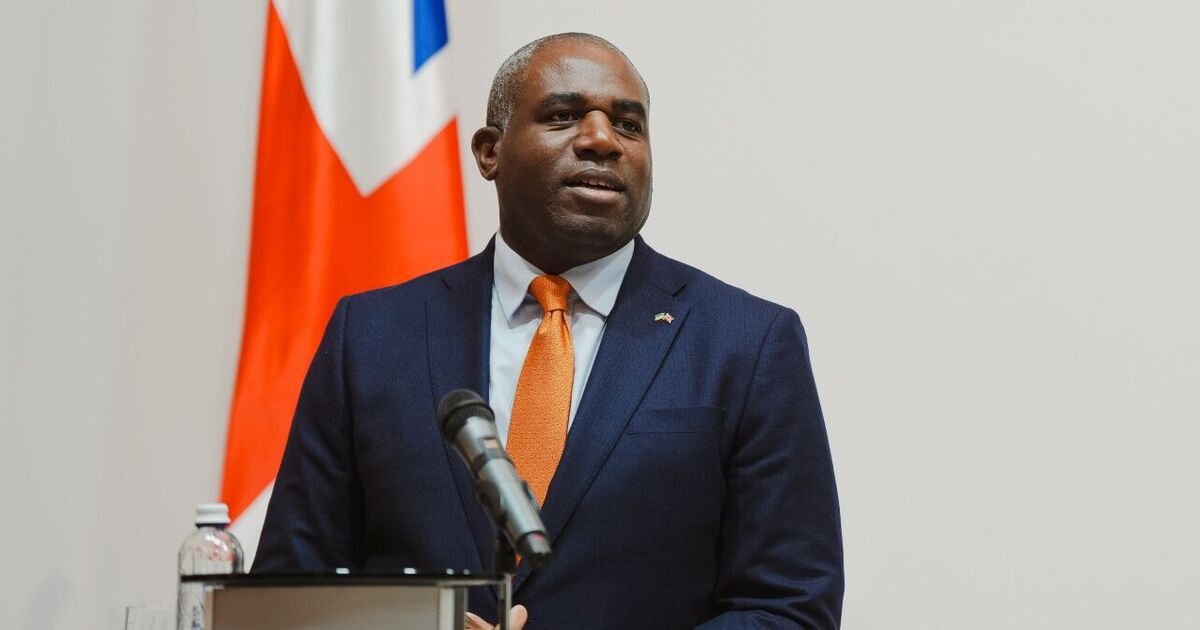Britain has formally restored diplomatic relations with Syria for the first time in 14 years. It comes as Foreign Secretary David Lammy visits Damascus this weekend, eight months after dictator Bashar al-Assad was overthrown.
Lammy is the first UK minister to visit Syria since the country plunged into civil war in 2011, and his arrival signals the re-establishment of direct diplomatic ties with the new Syrian government led by Ahmed al-Sharaa. Speaking from Damascus, Lammy said the UK was re-engaging because “it is in our interests to support the new government to deliver their commitment to build a stable, more secure and prosperous future for all Syrians”.
The UK has committed £96.5 million in new support, including £2 million for the Organisation for the Prohibition of Chemical Weapons (OPCW) to assist with the destruction of Assad-era stockpiles, and £94.5 million in humanitarian aid and long-term recovery funds. The money will also support women-led businesses, education, and Syrian refugees in neighbouring countries.
Lammy also met Syrian Civil Defence volunteers, known as the White Helmets, and pledged continued backing for their lifesaving work, including emergency medical care and the safe removal of unexploded ordnance.
While the FCDO framed the visit as a pragmatic next step in helping Syria rebuild after more than a decade of war, regional analysts have warned that Britain’s re-engagement could be seen as tacit endorsement of a fragile and contested power structure.
Beth Martin-Board, regional expert at the Satorus strategic risk group, said the move reflected “the West adapting to a new multipolar order where isolationism no longer works”.
“This is Britain’s way of securing a geopolitical foothold before China, Russia or Iran fully dominate the space,” she said. “But al-Sharaa is not a clean break from Assad — he emerged from a militant faction with ties to HTS and came to power through force, not a democratic transition.”
She added: “Al-Sharaa isn’t a clean break from Assad — he’s a former HTS-linked figure, and it’s important to remember that this government emerged out of a militant offensive, not a democratic transition.
“His government will welcome any economic backing and aid from the UK, using this to position themselves as legitimate.
“On the other hand, a power vacuum in Syria could present potentially vast national security risks, and having Britain in could help guard against that.”
Assad’s ousting last December signalled the end of influence — and vast strategic advantages — for both Russia and Iran.
But the transitional government has struggled to exert control, and faces continued insurgencies, escalating proxy conflicts, and deep legitimacy issues.
Alawite communities — seen as loyal to the old regime — have been targeted in sectarian reprisals, and jihadist groups such as Saraya Ansar al-Sunnah are exploiting the power vacuum.
Martin-Board also highlighted concerns over the security of ISIS detention camps in north-east Syria, and the risk that UK funds might inadvertently legitimise groups lacking the capacity to govern effectively.
The UK has provided £4.5 billion in aid to Syria and its neighbours since 2011.
But with the Assad era over and new risks emerging, officials say Britain can no longer afford to treat Syria as a frozen conflict.
As one Whitehall source put it: “Syria may be fragmented, but it’s still in play. If we’re not there, others will be.”
Last year, the former head of MI6, Sir Alex Younger, warned that a key part of UK foreign policy should be to maintain stability in eastern Syria, where Islamic State prisoners are held.
These include Shamima Begum, who fled Bethnal Green in London in 2014 to join Islamic State and was quickly dubbed the ‘jihadi bride’ after she married an ISIS fighter and had children with him.
“Re-engagement with Damascus under al-Sharaa raises concerns about who now holds operational control over detention sites where ISIS fighters are being held, especially in the north-east,” said Martin-Board.
“There is a view that UK re-engagement is indirectly legitimising a power structure that may lack either the will or capacity to secure these camps.”
Despite the uncertainty, the UK’s position is that restoring relations is necessary to tackle irregular migration, prevent the resurgence of Daesh, and ensure regional stability.
“A stable Syria is in the UK’s interests,” Lammy said.
“Reducing the risk of irregular migration, ensuring the destruction of chemical weapons, tackling the threat of terrorism and delivering the Government’s Plan for Change.”

